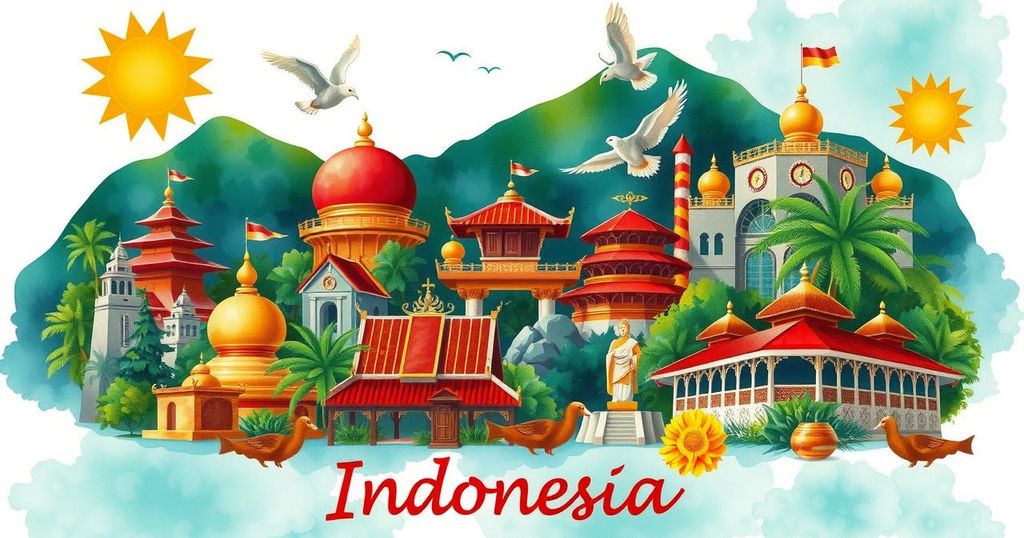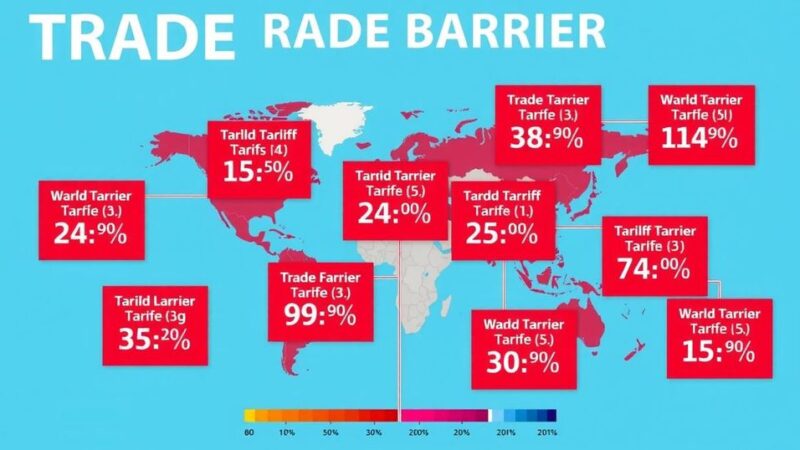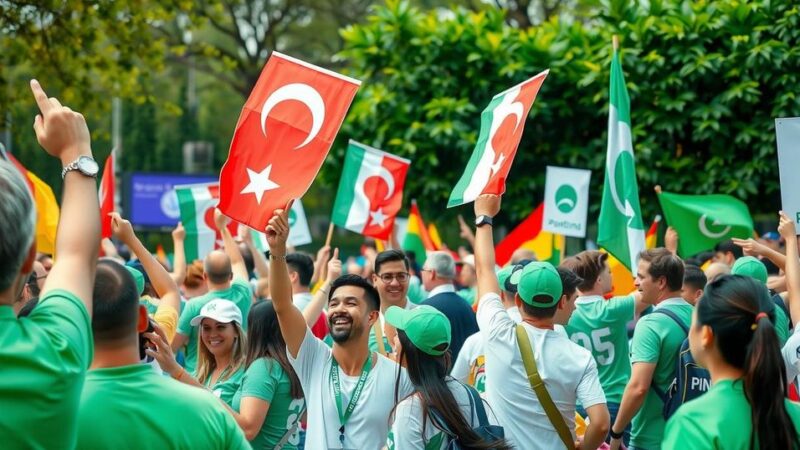This article discusses the ongoing student protests in Indonesia following President Prabowo Subianto’s inauguration, exploring the implications of these events through an interview with Allesandro Bernama from the Indonesian Embassy. It highlights Indonesia’s diverse democracy, historical context, and foreign policy, while addressing the importance of youth participation in political discourse and the strengthening of international ties, particularly with the UK.
Approximately 150 days following President Prabowo Subianto’s inauguration, Indonesia is experiencing significant student protests. Staff Writer Lara Bevan-Shiraz analyzes the national and international implications of these events, particularly through her unique interview with Allesandro Bernama, Head of Political Affairs at the Indonesian Embassy in London. This surge of dissent raises questions about the future of Indonesia, a burgeoning MINT country and new BRICS member, under the national motto of ‘Unity in Diversity.’
As Indonesia engages in the 2024 election cycle, it is only beginning to integrate new leadership under President Prabowo Subianto, who previously contested the presidency and has a complex history linked to human rights concerns. Despite his popularity, bolstered by an effective social media campaign aimed at younger voters, cracks are emerging in his administration’s favorable perception due to issues with policy implementation and perceived hypocrisy regarding budget cuts and cabinet size. The recent protests challenge the narrative of a stable honeymoon period for Prabowo’s government.
Bernama highlights Indonesia’s scope, defining it as a diverse archipelago with numerous ethnicities and the world’s largest Muslim population. The motto “Bhinneka Tunggal Ika” (Unity in Diversity) parallels the European Union’s motto, illustrating Indonesia’s commitment to community and consensus. He cites a vibrant young democracy marked by significant voter turnout and representation of women, showcasing Indonesia’s growing political landscape.
The nation’s historical foreign policy reflects its position and adaptability amid global pressures. Bernama articulates Indonesia’s ambition to act as a “bridge builder” on the global stage—joining various international organizations and providing humanitarian support, such as military aid and peacekeeping. He underscores Indonesia’s legacy of independence and the commitment to uphold international law.
On the potential ratification of the Genocide Convention, Bernama recognizes the sensitivities surrounding Indonesia’s past human rights violations while emphasizing the country’s dedication to established human rights conventions. He reassures that efforts to address historical wounds are underway, with the establishment of the Ministry of Human Rights reflecting a genuine commitment to reconciliation and progress.
In discussing the ongoing protests labeled as Indonesia Gelap (Dark Indonesia), Bernama views them as a testament to democratic engagement and a healthy means of political discourse. He asserts that the youth’s participation in protests is essential for accountability and demonstrates the administration’s responsiveness to public concern. Nonetheless, protests expressing discontent over military involvement in governance remain persistent.
Bernama represents a viewpoint of maintaining strategic relations with the UK, highlighted by a recent strategic partnership agreement coinciding with Prabowo’s audience with the King. Such developments signal a deepened collaboration and shared efforts across sectors, shown through Tony Blair’s involvement in various initiatives within Indonesia.
The Embassy has planned cultural events to strengthen ties with the UK, including a pavilion at the National Geographic Food Festival and showcases of Indonesian arts, cuisine, and traditions. Regular clubs at the Embassy, such as the Anglo-Indonesian Society, offer further opportunities for cultural exchange and engagement in Indonesian music and language studies, inviting participation from the community.
In summary, Indonesia faces critical challenges as student protests highlight underlying issues within President Prabowo Subianto’s administration. The nation’s diversity and growing democratic presence are underscored by the commitment to engaging with history and international responsibilities. As Indonesia navigates its identity and path forward amid internal discord, strengthening international partnerships—particularly with the UK—may offer avenues for resilience and growth. Cultural collaborations reflect Indonesia’s commitment to fostering understanding and connection in the global arena.
Original Source: roarnews.co.uk






